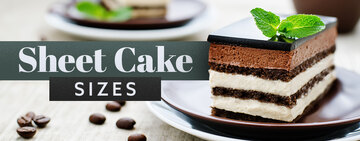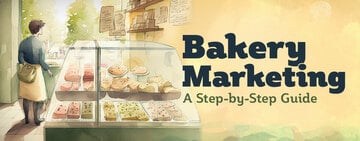
Whether you're starting a bakery or expanding your current operations, knowing the various types of bakery businesses available can help you make informed decisions that align with your goals and target market. From online bakeries to specialty patisseries, each type offers unique opportunities and challenges. We explore the characteristics and requirements of the most popular types of bakeries, so you can determine which suits your vision and objectives.
Bakery Business Models

The two main bakery business models are wholesale and retail. Each model has advantages and considerations, catering to different clientele and requiring unique operational strategies. Understanding the differences between these models can help bakery owners make informed decisions when writing their business plans.
- Wholesale Bakeries: These bakeries focus on producing large quantities of baked goods for distribution to other businesses that supply restaurants, cafes, grocery stores, and other food establishments with baked goods. Wholesale bakeries require efficient production processes to meet the demands of their clients while maintaining product quality and consistency.
- Retail Bakeries: Retail bakeries cater to consumers looking for freshly baked items such as bread, pastries, cakes, and cookies. Since they operate storefronts where customers can purchase baked goods directly, they prioritize creating a welcoming atmosphere to attract walk-in customers. Some offer custom orders for special occasions.
Types of Bakeries
Understanding the various types of bakeries can help you better appreciate the unique offerings each brings. Whether you're passionate about baking bread or creating dairy-free treats, the bakery landscape has niche options for every preference. We explore some common types of bakeries so you can define your brand.
1. Online Bakery

Online bakeries operate through e-commerce platforms, allowing customers to place orders and purchase baked goods online. Online bakeries can reach customers beyond their local area and ship baked goods nationwide or internationally. They cut the overhead costs of maintaining a physical storefront, allowing bakery owners to focus on fulfilling orders and creating delicious baked goods.
These businesses leverage technology to enhance the customer experience. Features such as online ordering systems, personalized recommendations, and secure payment options make it easy for customers to navigate the website and place orders with confidence. Some online bakeries even offer subscription services, allowing customers to receive regular deliveries of their favorite baked goods without reordering each time.
2. Pastry Shop

Pastry shops specialize in creating delectable desserts, such as tarts, cakes, and French pastries that are typically enjoyed on special occasions or given as gifts. These sweet treats are often considered indulgent and are savored as occasional luxuries rather than daily staples. Pastry chefs, who helm pastry shops, are highly skilled and specialized professionals who focus on crafting intricate desserts and confectionery.
In addition to crafting cakes and tarts, pastry chefs may also prepare non-baked items like custards, sauces, and chocolates to complement their dessert offerings. In contrast to pastry shops, bakeries cater to the daily consumption of baked goods such as bread, pastries, and other savory items commonly enjoyed for breakfast or dinner. Bakers are known for producing larger quantities of baked goods to meet the demands of their customers regularly.
3. Bread Bakery
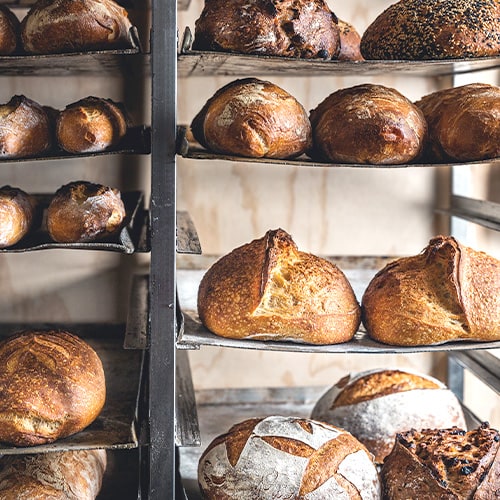
A bread bakery produces a diverse array of bread varieties, such as traditional loaves, artisanal bread, or sourdough. They may also produce gluten-free, vegan, or other dietary-specific bread options to cater to a diverse customer base. These bakeries use professional-grade ovens, dough mixers, proofing cabinets, and other essential baking equipment to ensure efficient and consistent bread production.
Bread bakeries often have skilled bakers who are trained in the art of bread making and understand the importance of proper fermentation, temperature control, and baking techniques. While formal culinary training is not always required, having experience working in a bakery or a related food service establishment can be beneficial. This hands-on experience allows aspiring bakery owners to gain insight into the intricacies of bread production, such as dough preparation, proofing, shaping, and baking.
4. Home Bakery

A home bakery is a small-scale baking operation run from a residential kitchen. Bakers in home bakeries can experiment with different flavors, ingredients, and techniques, allowing them to create unique and artisanal products that cater to specific tastes and preferences. This level of customization is often highly valued by customers looking for one-of-a-kind baked goods for special occasions or everyday indulgences. This emphasis on craftsmanship and artisanal techniques can result in baked goods that are not only delicious but also visually appealing, setting them apart from mass-produced items found in larger bakeries.
As they often sell their goods at farmer’s markets, home bakeries are known for their commitment to using high-quality, locally sourced ingredients whenever possible. By supporting local farmers and producers, home bakers can ensure that their products are fresh, flavorful, and made with ingredients that are both sustainable and environmentally friendly.
5. Cupcakery

Cupcakeries focus on producing and selling cupcakes, offering a wide range of flavors, designs, and sizes to cater to diverse customer preferences. In addition to standard flavors like vanilla and red velvet, cupcakeries often experiment with unique combinations and gourmet ingredients to create signature cupcakes that set them apart from traditional bakeries. Customers can customize their sweets by choosing from a selection of frosting flavors, fillings, and toppings to create a personalized cupcake experience.
These bakeries typically offer themed cupcakes for special occasions such as birthdays, weddings, holidays, and corporate events. In terms of presentation, cupcakeries often decorate their goods with intricate designs, colorful sprinkles, edible glitter, and other embellishments to enhance their visual appeal. Packaging is also an important aspect of the cupcakery experience, with many establishments opting for customized containers that not only protect the cupcakes during transport but also add to the overall presentation.
Back to Top6. Bakery Cafe
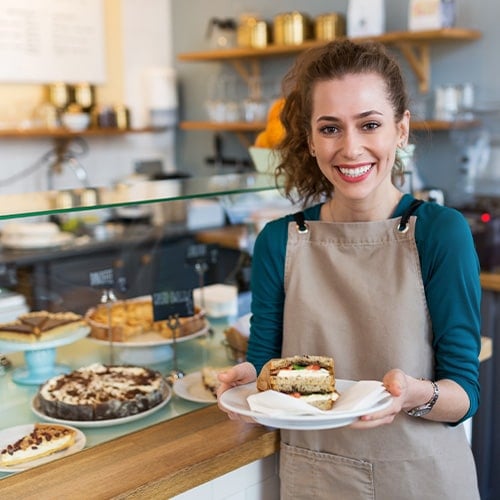
Bakery cafes combine the cozy ambiance of a cafe with the delicious offerings of a bakery. These establishments typically pair freshly baked goods with coffee, tea, and other beverages. A popular trend in coffee house culture is for coffee houses and bakers to team up to create a bakery cafe that attracts more customers and helps both businesses thrive.
One key feature of bakery cafes is their emphasis on creating a welcoming and inviting atmosphere for customers to enjoy both their food and the overall experience. Many bakery cafes have comfortable seating areas where patrons can relax, socialize, or even work while savoring their baked treats. In addition to their baked goods and beverages, bakery cafes often offer light meals such as sandwiches, salads, and soups, making them a popular choice for breakfast, brunch, or a casual lunch. This variety of offerings allows bakery cafes to cater to a diverse customer base throughout the day.
7. Bakery Food Truck
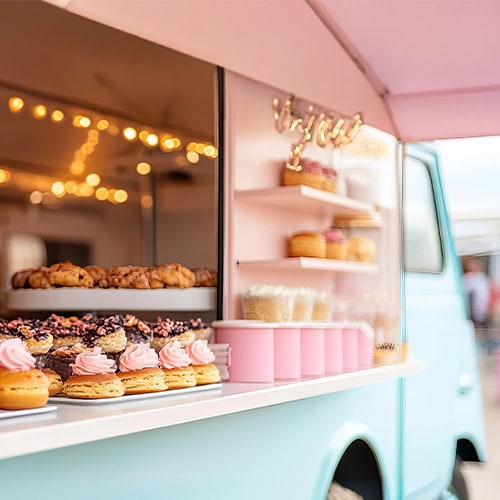
A bakery food truck is a mobile culinary business that specializes in serving freshly baked goods on the go, allowing owners to cater to different locations and events. These compact and versatile vehicles are equipped with the necessary kitchen equipment to heat and sell their bakery items, but most operators will use a commissary kitchen to prepare their baked goods. They're often seen at outdoor markets, festivals, fairs, corporate events, and weddings, offering a convenient and delicious option for guests to enjoy freshly baked treats.
In addition to the convenience of easily changing locations, bakery food trucks have lower overhead costs compared to traditional bakeries. With no need for a permanent storefront, owners can save on rent, utilities, and other expenses of operating a physical space. This cost-effective approach allows bakery owners to invest more in high-quality ingredients, equipment, and marketing efforts to enhance the overall customer experience.
8. Specialty Bakery

Specialty bakeries focus on creating specialized products that cater to customers with niche tastes or dietary restrictions. Three common types of specialty bakeries include sourdough bakeries, vegan bakeries, and gluten-free bakeries. Sourdough bakeries specialize in producing bread and baked goods using the traditional sourdough fermentation process and natural, simple ingredients to create high-quality products. Vegan bakeries are dedicated to offering plant-based baked goods that do not contain any animal products such as eggs, dairy, or honey. These bakeries use alternative ingredients like plant-based milk, flaxseed, and applesauce to create delicious vegan versions of classic pastries, cakes, and cookies.
Gluten-free bakeries specialize in producing baked goods that are free from gluten, a protein found in wheat, barley, and rye that can cause adverse reactions in individuals with gluten intolerance or celiac disease. These bakeries use gluten-free flour like rice flour, almond flour, or tapioca flour to create gluten-free versions of bread, cakes, and pastries. Whether it's the tangy taste of sourdough, the plant-based goodness of vegan treats, or the gluten-free options for those with dietary restrictions, specialty bakeries continue to delight customers with their creative and delicious offerings.
9. Wedding Cake Bakery

A wedding cake bakery specializes in creating stunning and delicious cakes for weddings and other special events. These bakeries are known for their intricate designs, attention to detail, and ability to customize cakes to match the theme and style of the wedding. They offer consultations with couples to discuss their vision for the cake, including the type of cake, its fillings, decorations, and overall design. In addition to traditional tiered wedding cakes, wedding cake bakeries may also offer other dessert options such as cupcakes, cake pops, and dessert bars to complement the main cake.
Wedding cake bakeries typically have skilled pastry chefs and cake decorators with the expertise to bring any design idea to life. Whether it's a classic white cake with intricate sugar flowers or a modern geometric design, these professionals work closely with clients to create a one-of-a-kind cake that not only looks beautiful but also tastes delicious. Even if the couple chooses to self-cater the food at their reception, working with a wedding cake bakery will make their special day even more memorable. Wedding cake decorators are skilled at creating a stunning and delicious centerpiece that reflects the couple's personal style and tastes.
10. Counter Service Bakery

At a counter-service bakery, customers typically walk up to a counter or bakery display case to make their selections. This type of bakery is commonly found in cafes, coffee shops, and small retail spaces like bookstores where customers can quickly grab a pastry to enjoy on the go. One key feature of a counter-service bakery is the open layout, allowing customers to see the assortment of freshly baked goods on display. This visual appeal can entice impulse purchases.
The self-serve nature of a counter-service bakery allows for a quick and seamless transaction process, making it ideal for busy environments where speed is essential. Counter-service bakeries often offer a variety of baked goods such as croissants, muffins, cookies, and pastries. These items are typically pre-packaged or displayed in a way that makes them easy for customers to grab and go. In some cases, customers may also have the option to order custom items or specialty baked goods from the counter.
Back to TopBy evaluating your business objectives, market demand, and operational capabilities, you can choose the type of bakery that aligns with your vision and maximizes your chances of success in the competitive food industry. Each type of bakery has its unique appeal and requirements, so it's essential to conduct thorough research and planning before deciding. Whichever type of bakery you choose, knowing the distinctions between the different business models will guide your business decisions and set you on the path to success.




